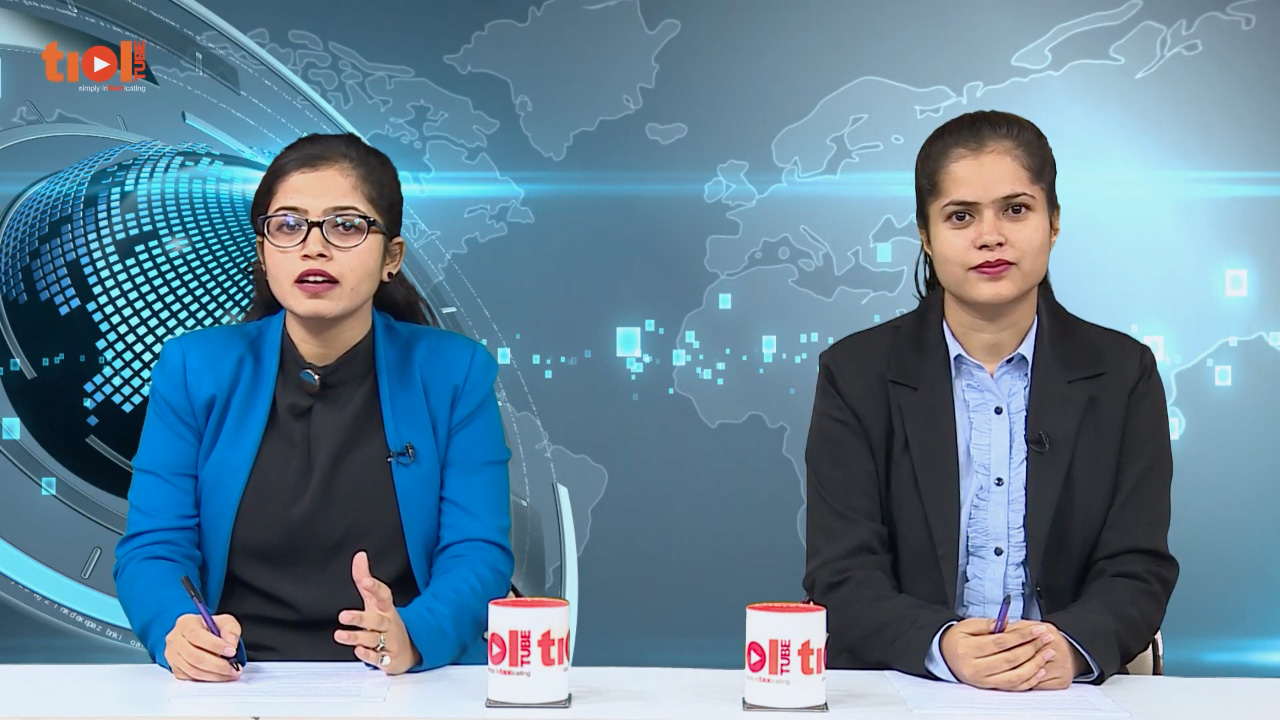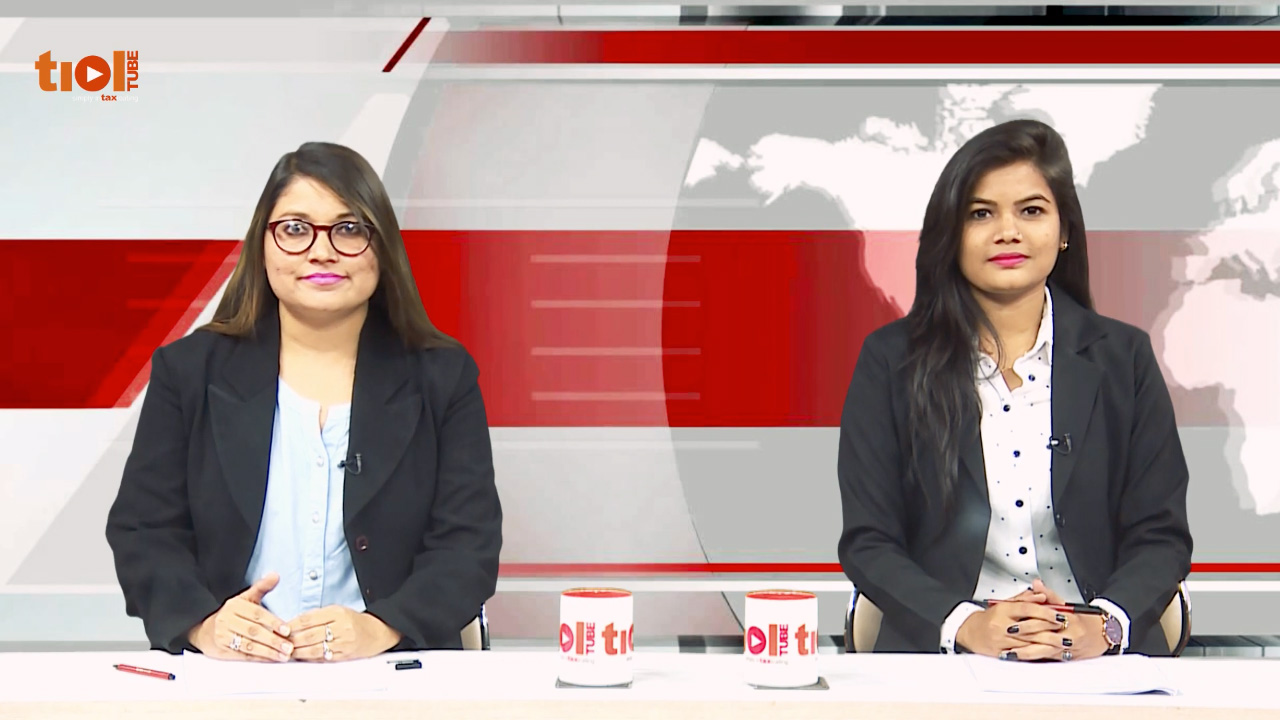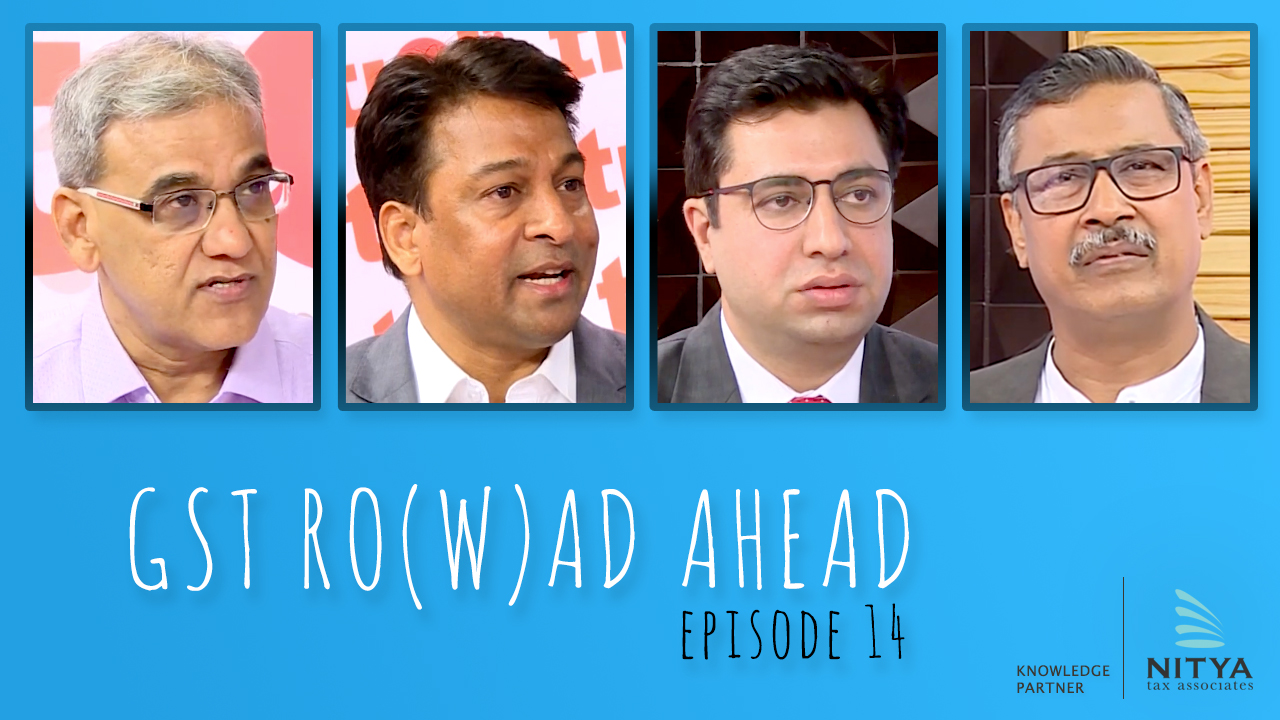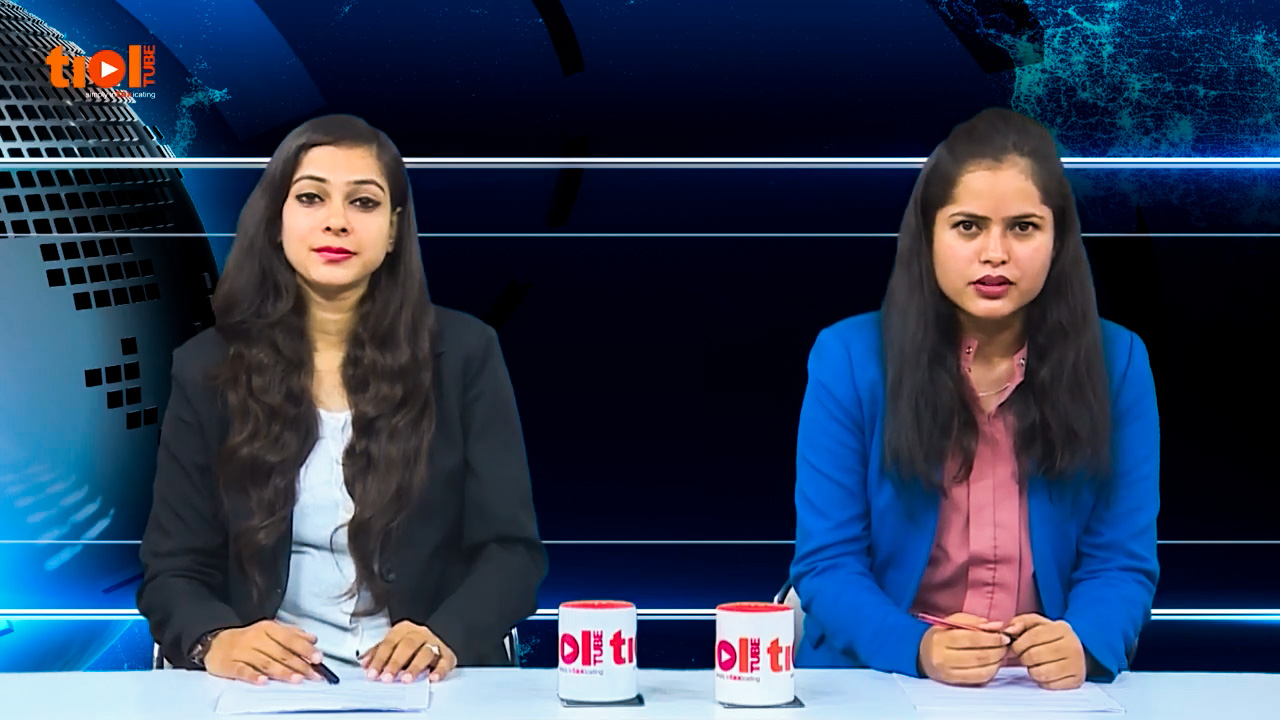| SERVICE TAX
2019-TIOL-2870-CESTAT-MUM
HDFC Bank Ltd Vs CCE
ST - The assessee-company is engaged in the business of vehicle finance - It has tie ups with various vehicle dealers for financing the vehicles - The assessee issued advertisements jointly for promoting the dealers business and for sharing the expenses - The assessee also took cenvat credit on the portion of advertisement expenses incurred by them in respect of advertisements jointly issued by them and the vehicle dealers - The assessee received some amount of commission for each vehicle sold by the dealer and financed by them - The assessee accounted for the commission amount as being subvention income - During the relevant period, the Revenue opined that the services provided by the assessee to the vehicle dealers were classifiable as Business Auxiliary Service (BAS) - An SCN was issued to the assessee proposing to recover the tax short paid or not paid u/s 73(1) of the Finance Act 1994 along with applicable interest u/s 75 - Penalties u/s 76, 77 & 78 of the Act were also imposed - The proposals of such SCN were confirmed upon adjudication - Hence the present appeal.
Held - BAS - It is settled position in the market that there are no free lunches - Any facility provided by a business entity to its client or customer, whether a business or an individual, comes with the associated cost - The associated cost is the consideration for provision of such facility - Thus, by providing or agreeing to provide the loans at lower rate or nil rate to the customers of vehicle manufacturers, the assessee promoted the sale of the vehicle in the hands of such manufacturer or dealer - Hence the facility of low or nil rate of interest provided by the assessee to the customers of the vehicle manufacturer is service classifiable under BAS and the amount paid by the manufacturer or dealer and which is accounted by the assessee as subvention income is consideration for such service: CESTAT
Held - Limitation - The assessee contended that it was under bona fide belief of no service tax being payable and so extended limitation could not have been invoked, more so since the issue was interpretational in nature and was not free from doubts - Such contentions do not hold much water - The assessee did not show any reason for entertaining any bona fide belief that service tax was not payable in respect of such subvention income - In fact the assessee availed cenvat credit in respect of the advertisements jointly issuerd along with the vehicle manufacturers and dealers for the purpose of special schemes - The act of availing Cenvat credit defies the claim made by the assessee that the issue was interpretational in nature and once credit is availed, the assessee cannot claim to be under bona fide belief that no tax is payable on the output services - If cenvat credit is availed even once in respect of input services, the natural consequence is to pay service tax on the output services - Thus the assessee deliberately withheld information in respect of the subvention income recovered by them, with intent to evade payment of tax - Hence extended period is rightly invoked for raising demand from the assessee - Hence penalty u/s 78 is to be sustained, in light of the decision of the Apex Court in Rajasthan Spinning and Weaving Mills - Moreover, penalty u/s 77 are civil in nature & are imposed for infraction noticed since by not making proper declaration in ST-3 returns, the assessee contravened the provisions of Section 70 r/w Rule 7 of the STR 1994 - The penalties imposed u/s 77(2) are justified as well - Regarding interest, the same is upheld where the duty demand has been upheld as well: CESTAT
- Assessee's appeal dismissed: MUMBAI CESTAT
2019-TIOL-2869-CESTAT-ALL
Vodafone Mobile Services Vs CCE
ST - The issue at hand pertains to the admissibility of three services as input services for providing the output service of telecommunication services - The input services in question were Conference/Event Management Service, Maintenance Service for maintenance of DG Sets and Liasoning & Documentation services - The original authority held that the same were not input services as they were not needed for providing the output service - Hence credit was sought to be disallowed in respect of these services, triggering the present appeal by the assessee.
Held - As held by the Bombay High Court in M/s DBOI Global Services P. Ltd., the essential condition for admissibility for Cenvat credit on an input service is whether or not the input service is used for providing output service - In the present case, it is not disputed that the three services were used to provide output service - There is no dispute about the duty paid nature of the same - Further, the issue as to whether or not an input service will attract service tax, cannot be examined at the time of availment of the same - Hence the three services are eligible for as input services & so the service tax paid on the same is available to the assessee as ITC - Hence the O-i-A is quashed: CESTAT
- Assessee's appeal allowed: ALLAHABAD CESTAT
CENTRAL EXCISE
2019-TIOL-2868-CESTAT-AHM
Macleods Pharmaceuticals Ltd Vs CCE & ST
CX - The assessee-company cleared Monopas 05 for export on payment of duty under cover of ARE-1 under claim of rebate and issued an Excise invoice in respect of such clearance - It then filed refund claim for duty paid on Monopas 05, claiming that such duty had mistakenly been paid - Such refund claim was rejected on grounds that the assessee could not substantiate its claim regarding reversal of credit u/r 6(3)(iii) of the CCR 2004 - It was also claimed that the assessee failedto produce the relevant calculation - It was also alleged that the goods cleared by the assessee were exempted under Notfn No 12/2012-CE and so the payment made by the assessee was not duty, in which case, no refund accrued could be claimed - The O-i-O also referred to CBEC circular no 940/01/2011-CX dated 14/01/2011 to assert that if any amount is collected in the guise of Excise duty on exempted goods, then it must be deposited with the Govt u/s 11D of the Act - Hence the present appeal.
Held - In the present case, the assessee chose to pay duty in the relevant year, from which it emerges that the same is a voluntary act - What emerges is that the assessee who was not liable to pay duty on exempted goods and who sought to export the same under claim of rebate by paying duty, sought refund of such duty paid u/s 11B - The admissibility for refund cannot be adjudged on the basis of whether the assessee voluntarily paid duty or otherwise - The admissibility of refund can be adjudged solely on the basis of the fact if the assessee is liable to pay duty or not - Presently, as the assessee was not required to pay any duty since the goods were exempted, the assessee is within rights to claim refund of such amount: CESTAT
Held - Cenvat credit - Rule 6(6)(v) exempts clearance for export under bond from the requirements of sub-rules (1), (2), (3) & (4) of Rule 6 of the CCR - In the present case, the assessee exported the goods on payment of duty - The fact of export is not challenged and the purpose of procedure export under bond is just to ensure that the goods are exported - In the present case, since the exports are not under challenge, even if the credit is not reversed in respect of such exports, the assessee would be covered by clause (v) of sub-rule 6 of Rule 6 of CCR 2004 and therefore exempted from the provisions of the other sub-rules: CESTAT
Held - Unjust enrichment - Perusal of Section 11B(1) of the Act shows that provisions of unjust enrichment apply to all refunds - However, in proviso to sub-section 11B(2), certain exemptions are made - One such exemption relates to rebate of duty on excisable goods exported outside India - In the instant case, the assessee's refund claim does not pertain to rebate of duty - The refund was claimed on grounds of erroneous payment of duty - In view of the clear provisions of Section 11B(1), the onus of establishing the lack of unjust enrichment rests with the assessee - While the assessee is otherwise eligible for refund, the same will be sanctioned only if it passes the test of unjust enrichment - Hence the matter warrants remanded to determine the same: CESTAT
- Case remanded: AHMEDABAD CESTAT
CCE & ST Vs Nayara Energy Ltd
CX - The assessee raised a preliminary issue of maintainability of appeals before this Tribunal and submits that the issue involved is fixation of brand rate of duty drawback - As per Section 129(1)(b) of Customs Act, 1962, the matter relates to drawback and where the impugned orders passed by Commissioner (A), the jurisdiction to appeal lies with the revisionary authority, Govt. of India - From plain reading of Section 129(1)(b) of Customs Act, it is amply clear that where the impugned order is passed by Commissioner (A) and the issue involved is of payment of drawback, the proper authority before the application is to be made is Revisionary Authority, Govt. of India - Therefore, this Tribunal has no jurisdiction to entertain the appeal relating to issue involved of payment of drawback - Though the Tribunal order in case of Essar Oil Limited has been challenged by Revenue before the Gujarat High Court but there is no stay on operation of the order of this Tribunal - Accordingly, considering the statutory provisions and decision of this Tribunal in Essar Oil Limited, this Tribunal has no jurisdiction in present appeals - Accordingly the appeals are dismissed as non-maintainable: CESTAT
- Appeals dimissed: AHMEDABAD CESTAT
2019-TIOL-2866-CESTAT-BANG
Mangalore Refinery And Petrochemicals Ltd Vs CCE & CT
CX - The assessee-company produces and distributes HSD/MS and SKO to various oil companies such as IOCL, HPCL & BPCL - It established a JV company named Petronet HB Limited, which is responsible for transporting petroleum products after clearance from the refinery to the oil marketing companies - It transferred the products through a single Petronet MHB pipeline & various products were pumped in sequence - Whenever HSD/MSD is pumped, a little quantity of SKO is pumped as intermix or interface to clean the pipelines - The Revenue issued an SCN alleging that such SKO which was used as interface was cleared with intent to be distributed through the Public Distribution System and that such quantity of SKO was not used for the desired purpose and that the exemptions under Notfn No 12/2012 and CBEC Circular No. 636/27/2002-CX dated 22.04.2002 were inapplicable - Such proposals were confirmed upon adjudication - Hence the present appeal.
Held - The issue at hand is no longer res integra and stands settled in the assessee's favor vide the Tribunal's decision in Order No. 20515-20519/2019 dated 02.07.2019 wherein it was held that the eligibility of the Notification is decided by the intent and not by actual use as the wording in the Notfn is intended for sale through PDS - The Tribunal also relied on cases of a similar nature to settle the issue in favor of the assessee - Following such findings, the assessee's appeal merits being allowed: CESTAT
- Assessee's appeal allowed: BANGALORE CESTAT
CUSTOMS
2019-TIOL-2865-CESTAT-BANG
Triway Forwarders Pvt Ltd Vs CC
Cus - The appellant is a Customs broker based at Cochin port and also functioning at other ports - During the relevant period, an O-i-O was passed alleging contravention of provisions of the CBLR 2013 - Pursuant to an inquiry, a penalty was imposed on the appellant, which then triggered the present appeal.
Held - In the O-i-O, it was observed that action was taken against the appellant based on an O-i-O passed by the Commissioner of Customs at Nhava Sheva Port - It is observed that in the absence of any offence report alleging violation of Regulation 11(d), 11(e) and 11(f) of the CBLR, there was no basis to decide the matter any further - It was also observed that there was no allegation of wilful mis-declaration proved against the assessee in the inquiry conducted by the Inquiry Officer - In view of such findings, it was unjustified on the Commissioner's part to impose a penalty without holding the assessee to be guilty of violation of the CBLR as alleged against the appellant - Hence the penalty imposed on the appellant is unsustainable and merits being set aside: CESTAT
- Appeal allowed: BANGALORE CESTAT
2019-TIOL-2864-CESTAT-BANG
Wipro GE Healthcare Pvt Ltd Vs CST
Cus - The assessee-company imported anesthesia ventilatory system and filed BoE claiming exemption under Notfn No 21/2002-Cus and Notfn No 6/2006-CE - The Revenue observed that the goods were anesthesia machines with ventilation facility and so were ineligible for exemption under these notifications - Assessment order was passed without extending such benefit - On appeal, the Commr.(A) upheld such findings - The Commr. observed that both notifications extended concession to goods described as ventilator used with anesthesia apparatus - Hence the present appeal.
Held - The issue at hand is no longer res integra and stands settled vide the Tribunal's case in CC, New Delhi vs. Datex Ohmeda (India) Ltd wherein it was held that ventilation part is the facility to expand the clinical capabilities of the Avance to help, to meet the needs of the patients - It was also held that the literature available appears to show that the equipment is basically an anesthesia equipment with a ventilator which increases the capacity of the machines to cater to the requirements of the patients as and when such need arises - Following such findings, the assessee's appeals are allowed: CESTAT
- Assessee's appeals allowed: BANGALORE CESTAT |












